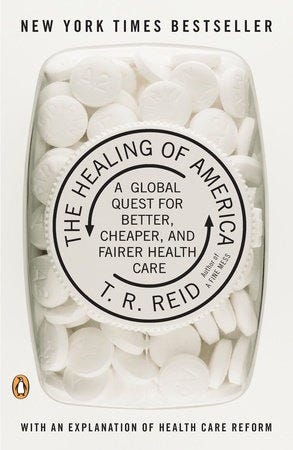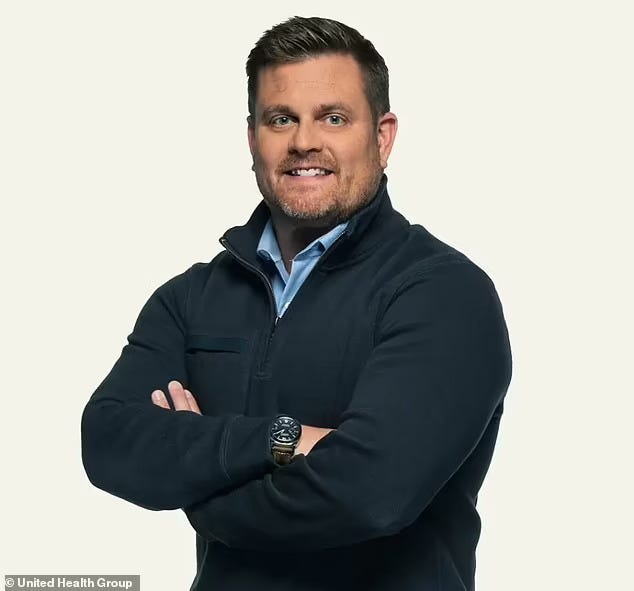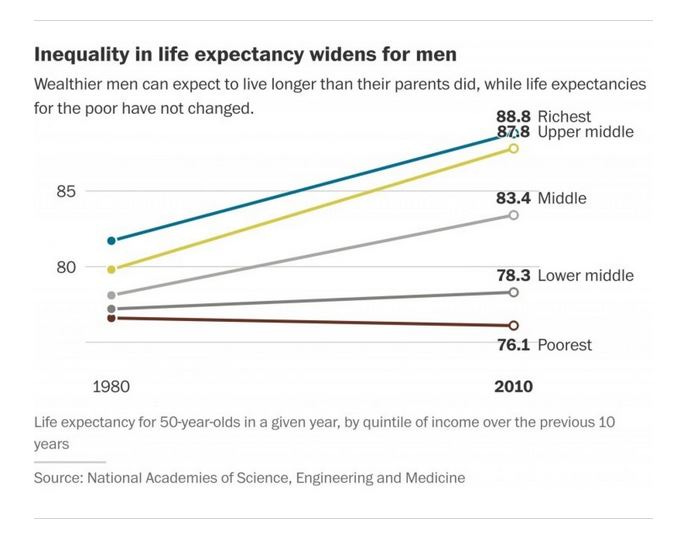After the assassination of United Healthcare CEO Brian Thompson I think it's time to look at why America's healthcare system is so corrupted that normal people would cheer the death of a prominent healthcare executive. I doubt you'll be surprised to hear that it is all capitalism's fault.
Let's start here:
The needs of the typical American are not the needs of the American rich. If you talk about healthcare, childcare, or college debt – you’re talking about things no rich family needs to worry about. The rich can afford the best healthcare – some don’t even really need insurance because a wealthy person can afford to cut a $500,000 check for heart surgery. The rich can afford quality childcare when their kids are small. Rich folks pay for full time live-in nannies to watch little ones 24 hours a day. College debt? Please. The rich send their kids to the most expensive private schools without a second thought. For the rich there is no such thing as a student loan because mom and dad can pay full freight without blinking.
Just to refresh, who do the political class in this country answer to? They answer to the people who fund their campaigns. Rich people are at the front of the line because the political class depends on them to keep their jobs. The rest of us are expected to show up on Election Day to ratify the choices that rich people have made on our behalf. Because of this the needs of the public are secondary to the needs of the rich. Yet our situation is far from hopeless.
The US healthcare system is completely unsustainable. Within our lifetimes it is going to change and it is going to break in favor of the US public. It absolutely must. We have the most expensive healthcare system on earth with the worst health outcomes of any wealthy industrial nation. The average spent per person in the US was $12,555 a year (in 2024) compared to the UK, which spends $5,493 per person annually. Approximately 18 percent of the US economy goes to healthcare, more than twice what other major countries spend. That’s already really high but some projections estimate that number could climb past 37 percent of GDP by 2050. That means that in the year 2050 almost two out of every five dollars spent in the US will be for something health-related.
According to a Commonwealth Fund report the US “ranks behind most countries on many measures of health outcomes, quality, and efficiency.” In recent years average life expectancy in the US has been dropping, down to 77.4 in 2022. We are waaay behind countries like Japan and Switzerland, where life expectancies are closer to 84. So even though we’re spending vastly more money than everybody else we’re getting worse results. That might not seem like a huge deal but even small differences in life expectancy add up when your country is home to 335 million people. If Americans were to extend life expectancies by five years that would be more than an additional 1.6 billion years of life.
Why is life expectancy dropping in the US? In a word: Inequality. If you look at life expectancy by income you’ll find that the rich live about 15 years longer than the poor. The reason the average is going down is that infant mortality in America is pathetic compared to other wealthy industrial nations. In 2019 American infant mortality rates sat between the Slovak Republic and Chile, taking 33rd place out of a list of 38 modern industrialized nations. That shouldn’t be, you think. We have the best facilities in the world! Just about every big hospital has a neonatal intensive care unit. Inequality is driving this number. Impoverished American women aren’t getting good prenatal care. In America poor women lose more babies than rich women.
Another classic benchmark for determining how well a country’s healthcare system is working is called “avoidable mortality.” How good is the US at curing diseases that are curable? In a 1998 study by the Commonwealth Fund the US ranked 15th out of 19 wealthy industrial countries. Just 10 years later we dropped to last place. According to researchers the US could save 100,000 lives a year if we cured the curable diseases as well as the top three countries in the ranking, France, Japan, and Australia. As Cathy Schoen of the Commonwealth Fund pointed out, “The fact that other countries are reducing these preventable deaths more rapidly, yet spending far less, indicates that policy, goals, and efforts to improve health systems make a difference.”

It’s estimated that between 35,000 and 45,000 Americans die every year because they don’t have medical coverage. It's probably more. A study in 2020 predicted that more than a million Medicare recipients would die in this decade because they couldn't afford their prescriptions. As the writer T.R. Reid points out in his excellent comparative analysis of world healthcare systems The Healing of America, after 9-11 the US added an entire new cabinet department and spent untold billions because nearly 3,000 Americans died. But with 10 times that number of Americans dying every year for lack of health coverage there is no similar mobilization to staunch the bleeding. In his concluding chapter Reid emphasizes the main theme of the book: Every nation’s healthcare system is a reflection of their moral values. Let’s face facts; the American healthcare system discriminates based on wealth. Some live and some die based solely on their ability to pay. So what does that say about us?
As it stands now we pay more than any other country on earth for our healthcare but get worse results than countries that pay a fraction of what we do. That is a failure any way you slice it. We can get better results with less money - but that means that rich people would get less rich.
This is part 1 of a series on why capitalism is destroying America's healthcare system... In my next post we'll look at why the profit motive is to blame for this tragic situation.
Please like, comment, share, and restack so that others can find me here on Substack.
Let’s make them pay.


















Share this post